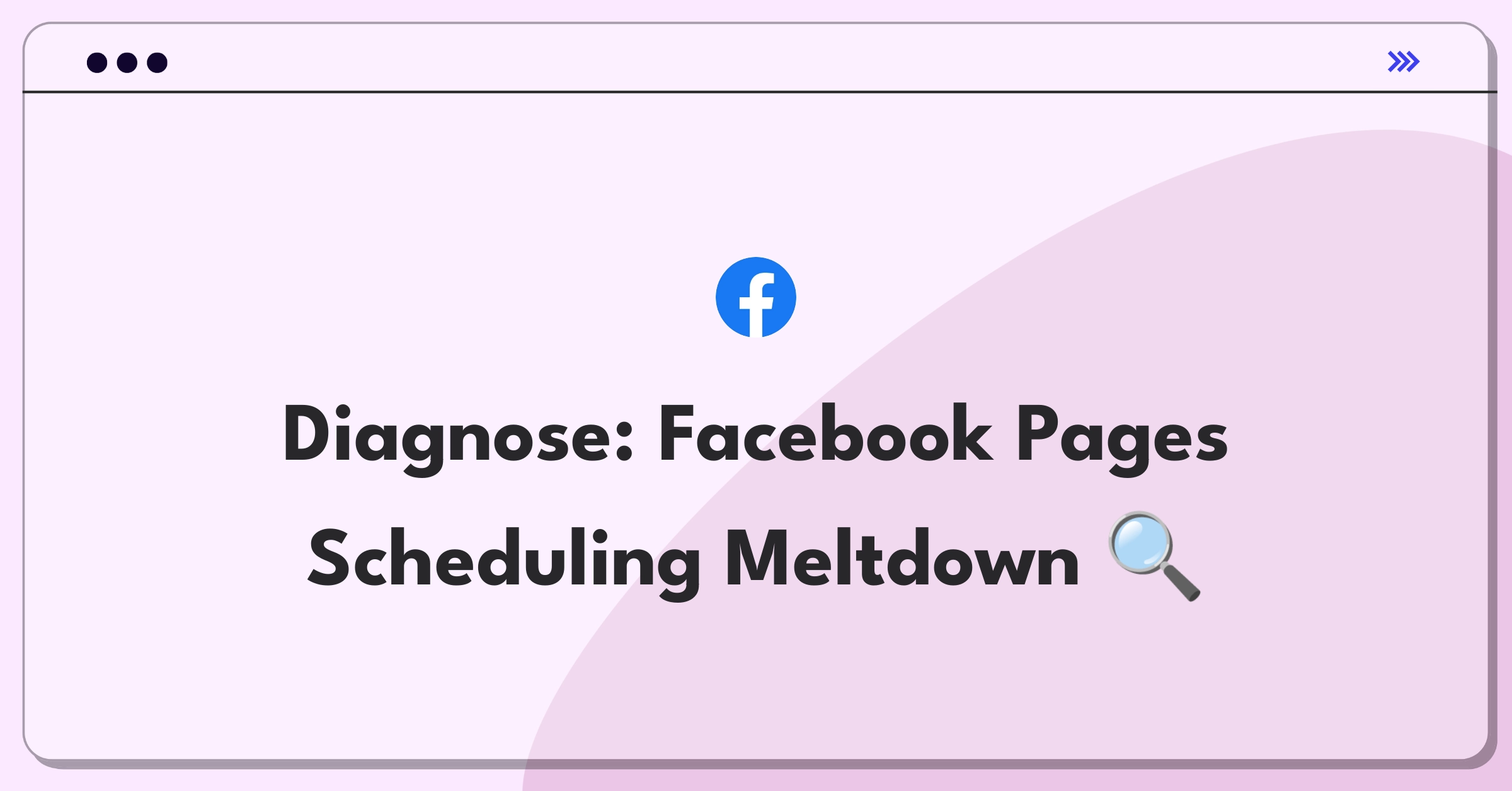Introduction
Facebook Pages post scheduling is a critical feature for businesses and content creators, allowing them to plan and automate their social media presence. The reported 40% failure rate in post scheduling attempts is a significant issue that demands immediate attention and thorough analysis. This problem not only impacts user experience but also threatens Facebook's reputation as a reliable platform for business marketing.
In this analysis, we'll systematically investigate the root cause of the scheduling failures, considering technical, user behavior, and external factors. We'll generate data-driven hypotheses, validate them, and propose both immediate and long-term solutions to address the issue comprehensively.
Framework overview
This analysis follows a structured approach covering issue identification, hypothesis generation, validation, and solution development, ensuring a thorough examination of the Facebook Pages post scheduling problem.
Step 1
Clarifying Questions (3 minutes)
Why it matters: Helps determine if it's a sudden spike or gradual increase, informing our investigation approach. Expected answer: Within the last week or month. Impact on approach: A sudden spike would suggest a recent change or bug, while a gradual increase might indicate a systemic issue.
Why it matters: Identifies if the issue is universal or specific to certain user groups. Expected answer: Varied impact across different Page types. Impact on approach: If specific to certain groups, we'd focus on unique characteristics or usage patterns of those segments.
Why it matters: Could indicate issues with server load or time-dependent processes. Expected answer: Higher failure rates during peak usage times. Impact on approach: Time-based patterns would suggest investigating server capacity or cron job issues.
Why it matters: Recent changes are often the culprit in sudden performance issues. Expected answer: Yes, a recent update to the scheduling algorithm or backend infrastructure. Impact on approach: Would focus investigation on recent changes and their potential unintended consequences.
Why it matters: Ensures we're not dealing with a measurement issue rather than an actual performance problem. Expected answer: No changes to the measurement system. Impact on approach: If there were changes, we'd need to validate the metric before proceeding with further analysis.
Subscribe to access the full answer
Monthly Plan
The perfect plan for PMs who are in the final leg of their interview preparation
$99.00 /month
- Access to 8,000+ PM Questions
- 10 AI resume reviews credits
- Access to company guides
- Basic email support
- Access to community Q&A
Yearly Plan
The ultimate plan for aspiring PMs, SPMs and those preparing for big-tech
- Everything in monthly plan
- Priority queue for AI resume review
- Monthly/Weekly newsletters
- Access to premium features
- Priority response to requested question


.png)